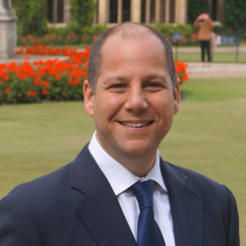Taking on board a sensible amount of risk is not a crazy thing, says Alberto Lidji.
While charities do not have shareholders, they often respond to market pressures in similar ways to the private sector and regularly prefer to compete with each other instead of collaborating or consolidating – even when oversupply is clearly evident.
Often, neither trustees nor their senior management teams have the incentive to embrace risk in any substantive way. Without the fear of activist shareholders, hostile takeovers or plummeting share prices; risk aversion and maintenance of the status quo can be quite palatable. There are good reasons why charities and private sector firms are structured and governed differently, but a closer appreciation for each other’s positive attributes can lead to just the right balance when it comes to risk.
Unfortunately, the risk aversion that is prevalent in many charities can be costly, both in terms of foregone funding opportunities and suboptimal output for the public benefit. Philanthropists crave ingenuity and creativity from non-profits, yet they are often left disappointed and disheartened. Ambition, scalability and self-conviction – these are all closely correlated with a risk-loving disposition. The inverse isn’t so appealing. Risk aversion manifests itself in many ways: sandbagged budgets, excessive organisational slack, indecisiveness and a reticence to try novel approaches in philanthropic income generation and operations alike. T S Eliot’s incisive remark still rings true today: “Only those who will risk going too far can possibly find out how far one can go.”
Most of us who work in the non-profit space do so because we believe we can make a difference. My departure from the finance and private capital introduction world was largely motivated by a sincere desire to achieve more than just Q3 targets for shareholders.
I wanted to go beyond share price in pursuit of noble objectives and altruistic measures of success. No single person is likely to succeed in ensuring a charity embraces a sensible amount of risk and adopts a healthy sense of urgency. Both trustees and senior management teams need to share this desire jointly, if great things are to be achieved. Taking on risk means stepping out of one’s comfort zone, innovating and collaborating, with the aim of delivering charitable services more efficiently, promptly and robustly.
At the Duke of Edinburgh’s International Award Foundation we are fortunate to have trustees and a senior management team clearly determined to push the boundaries and embark on bold initiatives in pursuit of global philanthropic aspirations. We’ve set ourselves a monumental ambition: by 2026 we will ensure every single 14-24 year old in the world has the opportunity to participate in the Award – that’s one billion young people across every imaginable geographic region and socio-demographic segment.
Certainly, there is risk in this proposition but would we be doing our job if we didn’t reach for this opportunity to deliver the very best in non-formal education across the globe? In order to achieve this, we are embarking on new initiatives. We are rolling out a Global Fundraising Framework that will be the benchmark of excellence in fundraising capacity building across the 144 countries in which we operate, along with a new alumni programme for the eight million participants who have done the Award since 1956. Is there risk in this? Yes. Is it worth it? Absolutely!
Moreover, we have invested heavily in our online record book – a new digital platform that provides detailed visibility into participation and enables us to scale up globally with ease. Interestingly, the Duke of Edinburgh digitally presented a Gold Award from our HQ in London to a participant in New Zealand back in March.
Our future is incredibly bright but we would not be facing such interesting prospects were it not for a sensible appetite for risk and the understanding that failure is simply part of a much bigger equation. How much you embrace risk is entirely at your discretion. However, taking on board a sensible amount of risk quite possibly could ensure you realise the sort of transformational aspirations that attracted you to the non-profit space in the first place.
Alberto Lidji is director of development at the Duke of Edinburgh’s International Award Foundation. He is founder of Maximum Philanthropic Benefit, which advocates for impact measurement in philanthropy.









